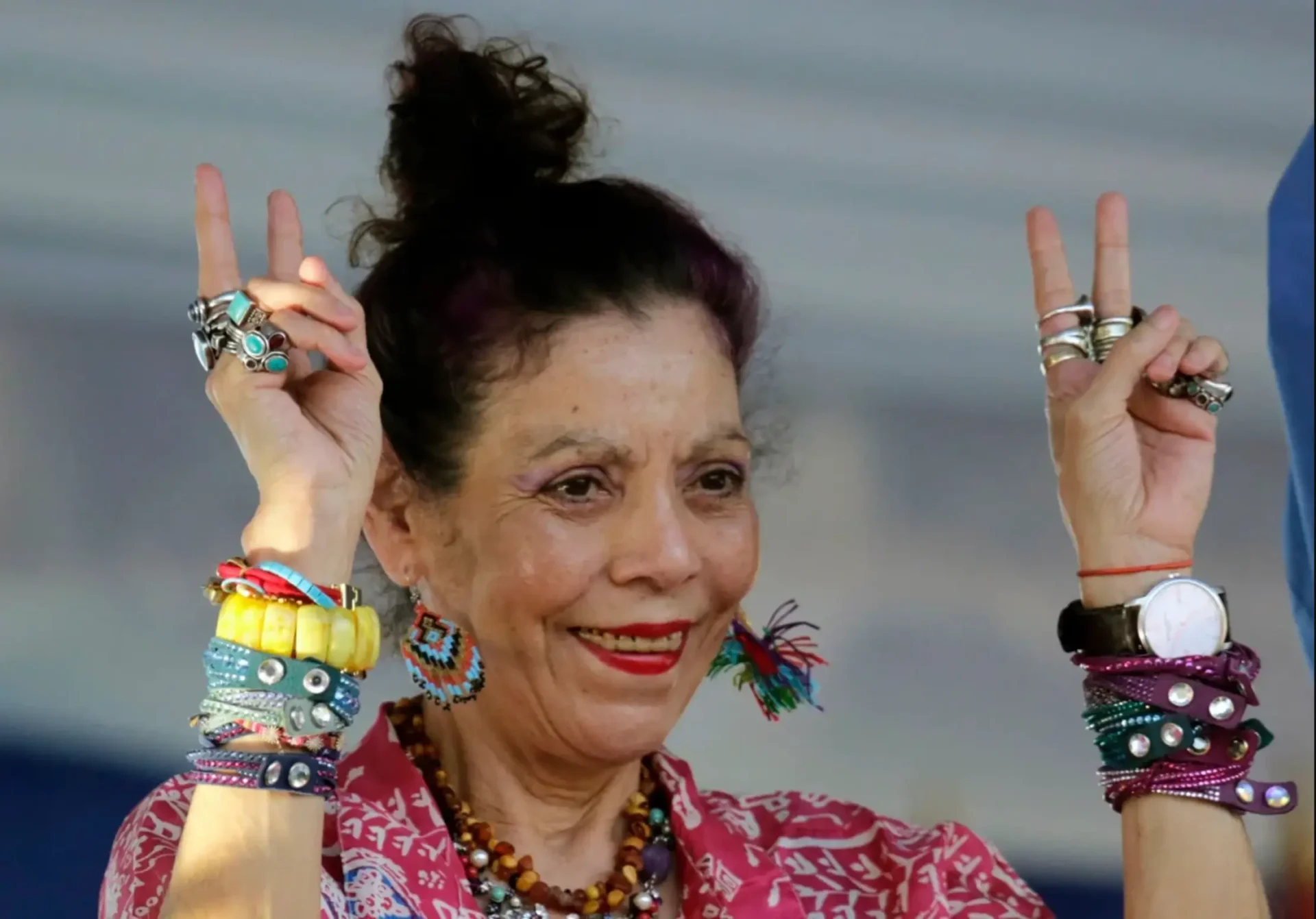One of the great mistakes of Nicaragua’s democratic forces has been to underestimate Daniel Ortega, a politician who, for over 40 years, has managed to remain the central force of the country’s criollo political scene. Today, we must not repeat that mistake with another key figure: underestimating Rosario Murillo, who has a strategy—and is executing it systematically. In fact, we are already experiencing the tangible consequences of that strategy.
But what exactly is that strategy? For some, her actions are nothing more than the erratic outbursts of an irrational figure acting solely out of hatred and revenge—a kind of “witch.” And while it’s true that her personality is deeply marked by these traits, enough time has passed to recognize that we are dealing with a woman with an unrelenting will to power.
Before analyzing her strategy, we must first understand her goal: to establish a permanent family dynasty shaped in her image. To that end, she has laid out a strategy that is becoming increasingly evident and revolves around one decisive variable. A decisive variable is what determines the outcome of a specific situation. In Nicaragua, there should be no illusions: the decisive variable is—and will continue to be—the National Army. Any decision about succession will be made by the military. As Mao Zedong once reminded us, “political power grows out of the barrel of a gun,” a statement that could not ring truer in Nicaragua, where the “hollow reeds” have shaped our history since independence.
Rosario Murillo faces a situation similar to that of two other dictator’s wives who attempted to secure the authoritarian succession of their husbands: Madame Mao (Jiang Qing) in China and Grace Mugabe in Zimbabwe. Both failed, and their aspirations ended in personal disgrace. What Murillo is attempting—succeeding her dictatorial husband—is something no woman has achieved in modern history. The mere fact that she has set her sights on such a goal reveals the extent of her ambition and boldness.
Grace Mugabe allied herself with young military officers and certain politicians. However, the army’s top brass always viewed her with suspicion—so much so that, once they realized Robert Mugabe was no longer ruling and that she was in charge, they decided to bring down the regime: a dictatorship that had lasted 37 years. In Madame Mao’s case, her failure stemmed from not getting her husband to name her as his successor, and from lacking any formal roles in government or the Communist Party. In the end, the moderate leaders of China’s Party and State gained the army’s crucial support and staged a bloodless palace coup that erased her from the political map.
Murillo, it seems, has studied both cases closely, because she is not making the same mistakes. On the contrary, her strategy has been surgically effective—frighteningly so—for all her enemies, especially those within the regime itself.
That strategy has crystallized in three recent developments. First, the creation of a “co-presidency” within the Constitution itself, which formalizes her as the dictator’s designated successor and grants her maximum institutional power. Second, the complete takeover of the party’s leadership and the sidelining—or even imprisonment—of anyone disloyal to her. This reached a dramatic peak with the arrest and eventual death, as a political prisoner, of General Humberto Ortega, founder of the National Army and brother of the dictator. Third, on May 7, she secured a formal oath of loyalty from army generals to the co-presidency in a ceremonial act, thus “rubber stamping” the armed forces’ support for her role as successor.
However, a fissure in Murillo’s strategy is widening: Daniel Ortega’s increasing absences are fueling speculation. Rumors about his deteriorating health—and even his imminent death—undermine her position in the succession race. The ideal scenario for her is a weakened but still-living Ortega, one who allows her to govern and buy time to consolidate her succession. That’s why, on May 24, following intense speculation about Ortega’s health, she resorted to her old reliable tactic: “parading the mummy,” using him as a totem, just as Madame Mao did with Mao Zedong and Grace Mugabe with Robert Mugabe. And so we saw an emaciated, nearly incoherent Ortega, handing out buses in what was portrayed as a grand political act—despite having missed a key Sandinista event: no less than the anniversary of Augusto Sandino’s birth.
This strategy, however, is far from invincible. Its major weakness lies in the fact that the majority of the population, party militants, state officials, and probably the military itself, despise and reject her. They also oppose her attempt to install her son, Laureano Ortega, as successor. Laureano is seen in Sandinista circles as an unqualified heir, an opportunist with neither the stature nor the character to lead. Despite being groomed within the regime, he has failed to convince anyone. Within the military, few appear willing to accept as their top commander someone whose original dream was to become an opera singer.
The constant purges and widespread popular hatred suggest that many are just waiting for the chance to betray her and find another path for the nation during the inevitable turbulence of a succession crisis. Murillo, more than anyone, knows that many are waiting with knives in their teeth, ready to strike when Ortega dies. That’s why she acts the way she does.
*Machine translation, proofread by Ricardo Aceves.













